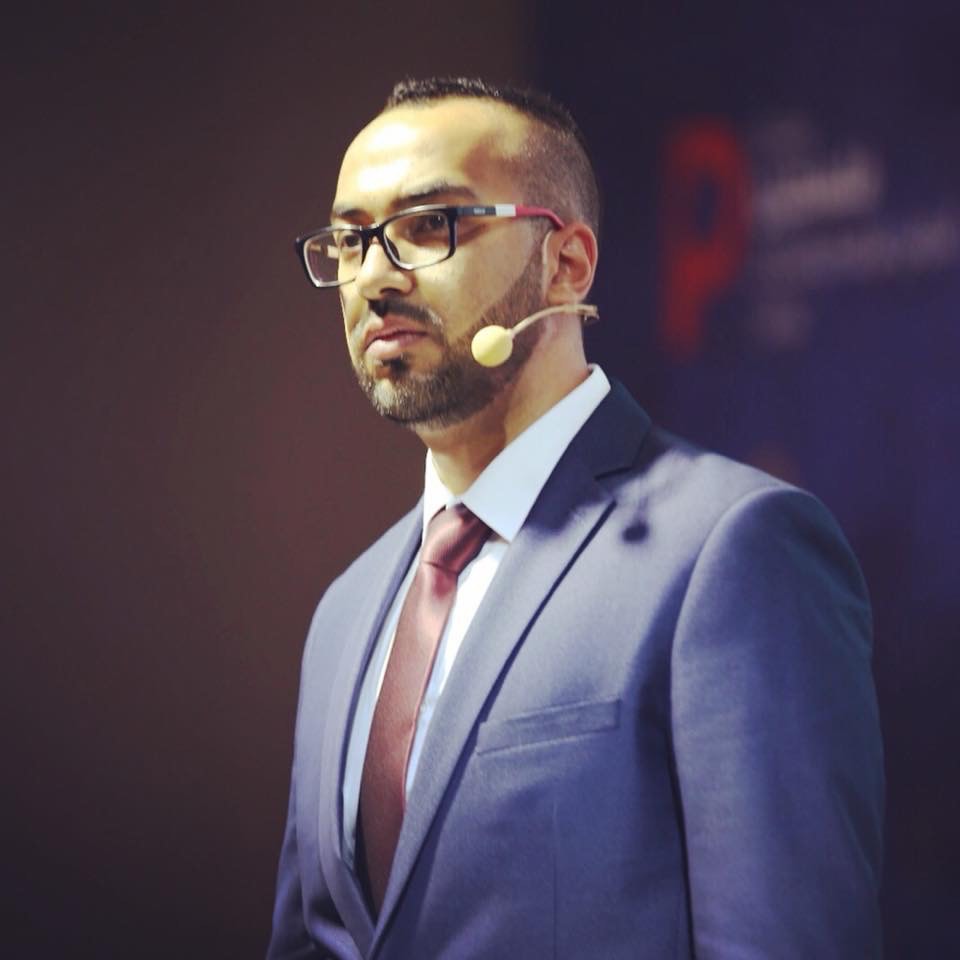شكّلت مواقع التواصل الاجتماعي نقلة نوعية في حياة الفلسطينيين كسائر مستخدميها حول العالم، وتحديدا الشعوب التوّاقة للحرية، والتي كانت تنظّر لها عبر الشاشات دون أن تتوفر على إمكانيات للتفاعل معها، أو للتنظير لها، أو لمحاولة الحشد لأجل تطبيقها، إلى أن هبت رياح الثورات العربية.
وفعلا، سار الفلسطينيون على نهج باقي الشعوب العربية، باستخدام هذه المواقع لأبعد من مجرد كونها مواقع ترفيهية. وتفاعل الفلسطينيون عبر مواقع التواصل الاجتماعي مع العديد من القضايا والأحداث، وتدريجيا، بلغت ذروة تفاعلهم مع قضاياهم بشكل كبير عام 2014، تزامنًا مع العدوان الإسرائيلي على قطاع غزة.
رواية محظورة
أخذ الفلسطينيون حينها على عاتقهم نشر الرواية الفلسطينية بألسنتهم وعيونهم إلى العالم كله، فتفعّلت صفحات يشرف عليها نشطاء فلسطينيون بلغات عديدة تشرح للعالم ما الذي يحدث في فلسطين بالتحديد، بعيدا عن الرواية الإسرائيلية، مما كان له الأثر الكبير في تشكيل وعي جديد وردة فعل لدى مستخدمي هذا الموقع.
جل النشاط الرقمي على منصات التواصل في فلسطين -حسب الإحصائيات- ينحصر على الفيسبوك، فقرابة 88% من مستخدمي الإنترنت الفلسطينيين يستعملونه استنادا إلى دراسة لمركز أي بوك للعام 2018 (1).
استأثر موقع فيسبوك باهتمام كبير على المستوى الأمني والرسمي في فلسطين المحتلة، فقد رصدت المؤسسات والجمعيات المختصة منذ العام 2014 وحتى 2017، أكثر من 300 حالة اعتقال (2) قامت بها قوات الاحتلال الإسرائيلي بحق فلسطينيين على خلفية منشوراتهم على مواقع التواصل الاجتماعي وفيسبوك خصوصا.
لكن يبدو أن الاعتقالات وحدها لم تكفِ الإسرائيليين لردع خوفهم من تأثير فيسبوك وسائر مواقع التواصل على الحالة الوطنية الفلسطينية، بل إن النتيجة التي وصلت إليها إسرائيل عقب موجة العمليات التي شنها الفلسطينيون ضد أهداف إسرائيلية بين عامي 2015 و2016، هي التحرك بأقصى سرعة، وقد تمخض عن ذلك تشكيل لجنة وزارية تتولى التواصل مع مواقع التواصل الاجتماعي وتحديدًا فيسبوك (3). ومنذ ذلك الوقت وإسرائيل تحاول محاصرة النشاط الفلسطيني على فيسبوك بطرق عديدة، ومن هذه الطرق كان مشروع قانون (4) لإزالة المحتوى الذي ترى إسرائيل أنه غير مناسب من هذا الفضاء الأزرق. وكانت الذريعة الأساسية لتمرير القرار هو ما أسمته إسرائيل "التحريض" الذي يمارسه الفلسطينيون ضد الإسرائيليين على مواقع التواصل الاجتماعي.
وبالتزامن مع ذلك، استطاعت الحكومة الإسرائيلية -بالتعاون مع فيسبوك- إزالة محتوى وحظر وإغلاق عشرات الصفحات الفلسطينية عام 2016، مما جعل نشطاء مواقع التواصل في فلسطين يطلقون حملة مضادة دعت إلى مقاطعة فيسبوك تحت شعار #FBCensorsPalestine، ولاقت رواجًا كبيرًا من نشطاء حقوق الإنسان حول العالم (5).
تحت ضغط الحملة الواسعة، تراجع فيسبوك عن خطوته أو خفف من حدتها على الأقل، وانتهت بإرسال أحد مسؤولي فيسبوك للاجتماع بالنشطاء الفلسطينيين في رام الله، وتقديم وعود بإنصاف المحتوى الفلسطيني واحترام خصوصيته.
لم تقف الحرب على المحتوى الفلسطيني عند هذا الحد، وإنما تطور الأمر لتصبح هناك ملاحقة ممنهجة ضده من قبل فيسبوك، مانعًا مستخدميه من نشر صور أو محتوى له علاقة برموز الشعب الفلسطيني من شهداء وقيادات وطنية، مثل إغلاق صفحة حركة فتح بسبب صورة للرئيس الفلسطيني الراحل ياسر عرفات (6) نشرت بداية العام 2017، ووصل الأمر إلى حد حذف المحتوى من الرسائل الخاصة بين المستخدمين كما حدث عندما حظر فيسبوك تداول الصور المتعلقة بوحدة إسرائيلية خاصة تسللت إلى قطاع غزة عام 2018 (7).
خلايا إسرائيلية
وكانت وزيرة القضاء الإسرائيلية إيليت شاكيد أكدت خلال ما سمي بمؤتمر مكافحة الإرهاب السادس عشر، أن إسرائيل قدمت طلبات لفيسبوك لإزالة محتوى وإغلاق حسابات لفلسطينيين، وقد تجاوب فيسبوك حينها مع 95% من الطلبات المقدمة له (8).
ويأتي هذا الحصار على المحتوى الفلسطيني في مقابل مساحة كبيرة تمنح للإسرائيليين، إذ يشير مركز "حملة" المختص بالإعلام الاجتماعي في الأراضي المحتلة عام 1948، أن منشورًا تحريضيًا ضد الفلسطينيين يكتب كل 66 ثانية (9).
أما مؤخرًا، عملت شركة فيسبوك على تطوير خوارزمياتها لتشمل كلمات ذات ارتباط وثيق بالقضية الفلسطينية مثل "شهيد، حماس، جهاد، جبهة شعبية، كتائب شهداء الأقصى، يحيى عياش.."، وغيرها من المصطلحات التي أصبح كل من يستخدمها يعرّض وجوده على المنصة الزرقاء للخطر. هذه الكلمات كانت كفيلة لتلقي الفلسطينيين عقوبات متنوعة من قبل إدارة فيسبوك، من بينها حذف منشورات وحظر من النشر وإغلاق صفحات (10).
وأعدّ النشطاء الفلسطينيون مجددًا حملة مضادة احتجاجًا على ممارسات فيسبوك ضدهم، شملت توجيه رسالة إلى الإدارة في الشرق الأوسط، ومن ثم إطلاق حملة تغريد عبر مواقع التواصل الاجتماعي للتعريف بما يتعرض له الفلسطينيون من تضييق من قبل فيسبوك (11).
وبلغت حصيلة التضييق والانتهاكات التي تعرض لها الفلسطينيون خلال العام 2019 قرابة 900 انتهاك على كافة منصات التواصل، كان لفيسبوك نصيب الأسد من هذه الانتهاكات المتنوعة، وفقًا للتقارير التي يصدرها مركز صدى سوشيال دوريا حول التشديد الذي يمارسه فيسبوك والمنصات الأخرى. ويعتبر مركز صدى شريكًا موثوقًا لفيسبوك في فلسطين، يعمل على توثيق الانتهاكات بحق المحتوى الفلسطيني، والتواصل مع إدارات هذه المنصات في محاولة لاستعادة المحتوى المحذوف وحمايته.
لمواجهة هذه الانتهاكات وغيرها من الحقوق الرقمية الفلسطينية، أسست مجموعة من مؤسسات المجتمع المدني الفلسطيني ائتلاف الحقوق الرقمية الفلسطينية لحماية المحتوى الفلسطيني المنشور عبر الفضاء الإلكتروني، والحفاظ على حقوق رقمية أخرى في مجالات متعددة. ويعمل الائتلاف على تعزيز التنسيق والتعاون والدعم المتبادل بين المؤسسات المدنيّة الفلسطينيّة الناشطة في مجال حماية وتعزيز الحقوق الرقميّة الفلسطينيّة بما يتوافق مع الاتفاقيات والمعايير الدولية لحقوق الإنسان والممارسات الفضلى، وفي ظل ارتفاع وتيرة انتهاكات الحقوق الرقمية (13).
وبينما يطالب النشطاء والمؤسسات الفلسطينية من المستوى الرسمي الفلسطيني بالتدخل لحماية الحقوق الرقمية الفلسطينية دون أي تحرك ملحوظ، تعمل إسرائيل على مستوى آخر للهجوم على المحتوى الفلسطيني من خلال وحدات سايبر متخصصة في الجيش تعمل على تقديم بلاغات ضد المحتوى الفلسطيني، وضرب صورة القضية الفلسطينية في العالم من خلال الاستعانة بشركات متخصصة (14).
إن الضغط الشديد والرقابة والمتابعة الحثيثة للمحتوى الفلسطيني من قبل إسرائيل وفيسبوك أسفر عن نتائج سلبية كبيرة في نسبة المشاركة السياسية للشباب الفلسطيني. وقد أثبت بحث أجري على الشباب الفلسطيني خلال العام 2019، أن ثلثي الشباب الفلسطيني لا يشعرون بالأمان للمشاركة السياسيّة عبر الإنترنت (15).
مراجع:
1- http://social.ipoke.co/c/facebook/%D8%AD%D9%88%D9%84-%D9%81%D9%8A%D8%B3%D8%A8%D9%88%D9%83
3- https://www.alhurra.com/a/israel-facebook/322881.html
4- https://ara.reuters.com/article/internetNews/idARAKCN0Z81R3
8- https://www.ynet.co.il/articles/0,7340,L-4853699,00.html
14- https://www.noonpost.com/content/13821








































